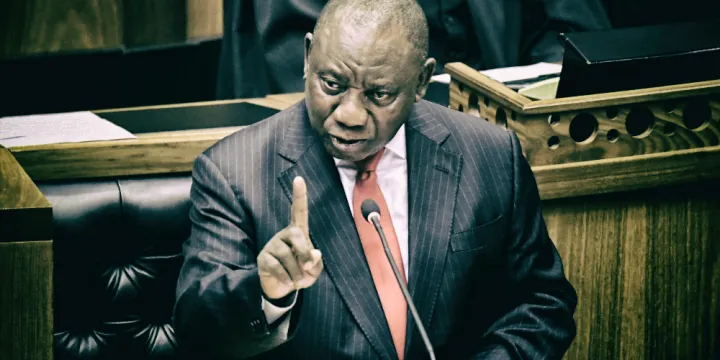President Cyril Ramaphosa is set to respond to a two-day intense debate on his State of the Nation Address (SONA) at 2pm on Thursday, following a week of deliberations in Parliament. The debate has seen members of Parliament dive deep into the issues raised in his speech, discussing topics ranging from the Expropriation Act to international relations, and the South African National Defence Force (SANDF) soldiers stationed in the Democratic Republic of Congo (DRC). This highly anticipated address marks a key moment for the president, as he will address the contentious matters raised by opposition parties, some of which have been particularly vocal in their criticism of his speech.

The Government of National Unity (GNU) partners have hailed Ramaphosa’s SONA as one of his most powerful speeches to date. The praise extended even to the Democratic Alliance (DA), a party that has long been critical of his leadership. DA leader John Steenhuisen expressed admiration for the speech, a rare moment of agreement between the president and opposition on his approach to South Africa’s challenges. However, not everyone has been so complimentary. The Economic Freedom Fighters (EFF) and the uMkhonto weSizwe Party (MK Party) rejected the address, accusing Ramaphosa of speaking without concrete action. EFF leader Julius Malema, in particular, has called for clarity on how South Africa plans to stand up to external pressure, particularly from the US, in light of the nation’s stance on Israel.
The MK Party’s Nhlamulo Ndhlela went as far as to label the address as a “failed state of the nothingness address.” He criticized the president for making empty promises, particularly on matters affecting South Africa’s education system. Ndhlela highlighted the persistent struggles in schools, from overcrowded classrooms to the continued use of pit toilets and the dilapidated infrastructure that hinders the country’s progress. His comments reflect a growing frustration among opposition parties with the gap between Ramaphosa’s rhetoric and tangible outcomes on the ground.
Ramaphosa is expected to respond directly to these concerns, with particular focus on key issues such as the Expropriation Bill and the National Health Insurance (NHI) Act, which have stirred significant debate. Additionally, the role of South African soldiers in the DRC remains a pressing international matter. The country’s commitment to peacekeeping missions abroad has been questioned by some, as families of fallen soldiers wait for their remains to be returned. Ramaphosa will also be attending the solemn handover ceremony for the SANDF personnel, marking a poignant moment in his leadership.
As the debate continues, it is clear that Ramaphosa faces mounting pressure from both domestic critics and international players. The upcoming response will be a critical moment for him to assert his leadership and address the deepening concerns that have emerged during this year’s SONA discussions.
